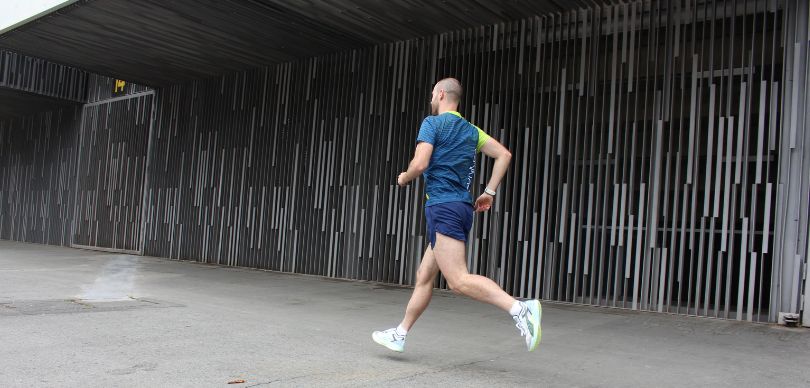One of the biggest doubts we runners face when having a marathon is whether we will be able to resist running the 42 kilometers and 195 meters. Or perhaps the concern goes further and we question whether we will be able to maintain the pace or speed that we have set beforehand. Whatever your goal, the marathon is a very uncertain distance and involves many factors beyond training.
Although following a good training plan does not guarantee optimal performance, it is the best tool for our body to arrive as prepared as possible to the big event. Within that preparation, we can state categorically that the aspect with the greatest weight is, in general, the body's ability to tolerate large volumes of kilometers within the planning and, specifically, the athlete's ability to perform long training sessions without physical setbacks.
Training for a marathon involves increasing our weekly mileage, at least in the specific phase.
What does training more or fewer kilometers depend on?
Before focusing fully on training volume, we should know that accumulating a greater or lesser number of kilometers depends on a number of very important factors:
Time of the season
Logically, training is not the same whether the marathon is a year away or a month away. Following the principles of training, the beginning of any planning should have a lower volume of kilometers and progress according to the passing of the weeks and, above all, depending on the tolerance to training.

Type of planning
Traditional periodization advocates adding the most kilometers in the first half of the preparation, where volume prevails over intensity. Once the body has become accustomed to tolerating long sessions, the number of kilometers is reduced in the second half to increase the intensity of the sessions.
Gradually, reverse periodization is taking over from traditional periodization. It is basically the opposite of the latter. In the first part we will perform the sessions at a higher intensity to improve our physiological thresholds and in the second half, we progressively increase the number of kilometers depending on our objective.
If we prepare for a marathon using traditional preparation, the highest volume of kilometers will be concentrated at least 6-8 weeks before the marathon. In the case of the inverse periodization the weeks with the highest volume will be 2 weeks before.
Level and experience of the runner
Vital aspect. The better physical condition and experience we have, the more our body and our musculature will have a greater capacity to tolerate the passage of kilometers in our legs. Consequently, the preparation of a runner who is making his debut in a marathon or running at low paces should be much more reduced in kilometers than the preparation of a runner with experience in marathons and with a medium-high level.
Knowing this, it is very important not to compare yourself with runners of a different level or draw conclusions about what is assumed to be the ideal training.

How do I know, then, how many kilometers a week I have to do to prepare for a marathon?
In line with the last paragraph, the volume of weekly kilometers to be done will be different for each person, so, runner friends, there is no numerical answer. Conditions such as time to train, family and work responsibilities or motivation, together with the aforementioned factors will make it necessary to individualize each case.
The runner should not adapt to the weekly mileage, it is the kilometers that must be adjusted to each athlete.
Typically, classic marathon training books recommend too high a volume of kilometers for most of us, with minimum weekly mileages of around 80-100km for even the most inexperienced or low level runners. Fortunately, both scientific evidence and the work of the new crop of coaches and trainers is showing that you don't need to train that much to perform at your best.
Instead, it is necessary to pay attention to work on and improve such decisive aspects as Vo2max, anaerobic threshold and running economy or efficiency, without neglecting the more demanding and intense sessions because the marathon is an event that is run at lower paces.
Although we are still unable to give you a concrete number despite all this valuable information, what we can do from RUNNEA is to give you some guidelines of a recommended and logical volume of kilometers to finish or compete in a marathon with guarantees.
Debutants or marathoners over 3h30'.
- General preparation: 20-40 km per week
- Specific preparation: 40-60 km per week

Marathoners between 3h and 3h30'.
- General preparation: 30-60 km per week
- Specific preparation: 60-90 km per week
Marathon runners between 2h30' and 3h
- General preparation: 50-80 km per week
- Specific preparation: 80-120 km per week
Before finishing, I would like to remind you that these numbers should be taken with a pinch of salt, because as we know, no two people are the same, no two situations are the same and no two plans are the same. The key to everything is to individualize the training to the maximum, much better if it is from the hand of an expert in the field.
Read more news about: Running Training






















